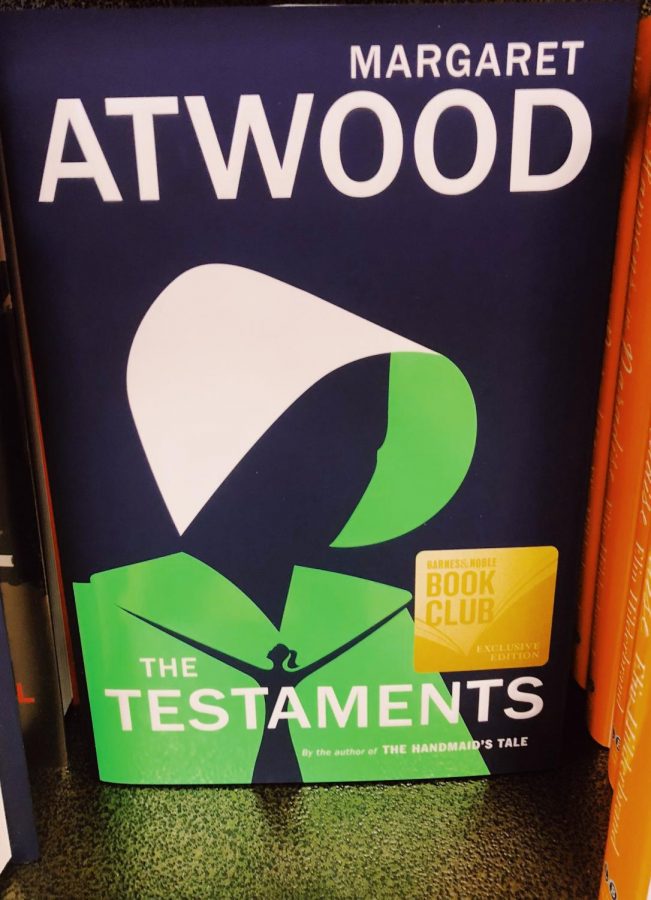A testament to The Testaments
Photo Abigail Jarecki
It has been 35 years since the release of the novel The Handmaid’s Tale, yet readers are still asking questions: What happened to Offred? How did America become the anti-feminist dystopia of Gilead? On Sept. 10, Margaret Atwood released The Testaments, answering many of these questions.
The Testaments is set in the same world as The Handmaid’s Tale, but years later and uses some recurring characters. However, it has none of the same main characters. These elements made me feel like The Testaments is not the second book in the series, rather a companion novel. You didn’t have to read the prior novel to understand this one.
I enjoyed seeing Atwood expand upon Gilead, understanding how this flawed government arose. This novel is written from the point of view of three women: a Canadian named Daisy; Agnes, who was born under Gilead rule; and a judge who lived through this switch to become the most powerful woman in Gilead, Aunt Lydia. Each point of view is from a woman with privilege in and out of Gilead.
One of my favorite parts was listening to the chilling rhymes and songs that Atwood created, which she had Gilead children sing. This made the world of Gilead more real and haunting. Experiencing the audiobook and hearing these parts in this ominous, minor key gave me chills. If you’re going to invest in this book, listening via audiobook is the way to go.
While Atwood adds these small sing-songy aspects of childhood nature making the novel so real, there are parts that seem unrealistic. Without giving too much away, seeing some main characters living the cliché “I’m the chosen one” mentality is not what I was hoping for.
One of my favorite parts of The Handmaid’s Tale was that protagonist Offred was just another handmaid with nothing special about her. This difference might have been because of the direction each novel takes. The Handmaid’s Tale is a dark future we might come to see, whereas The Testaments is a hopeful road from Gilead.
The Testaments is what readers could have expected in a sequel: women fighting for status in a system where man’s power is justification for ruthlessness. This was a powerful sequel.

